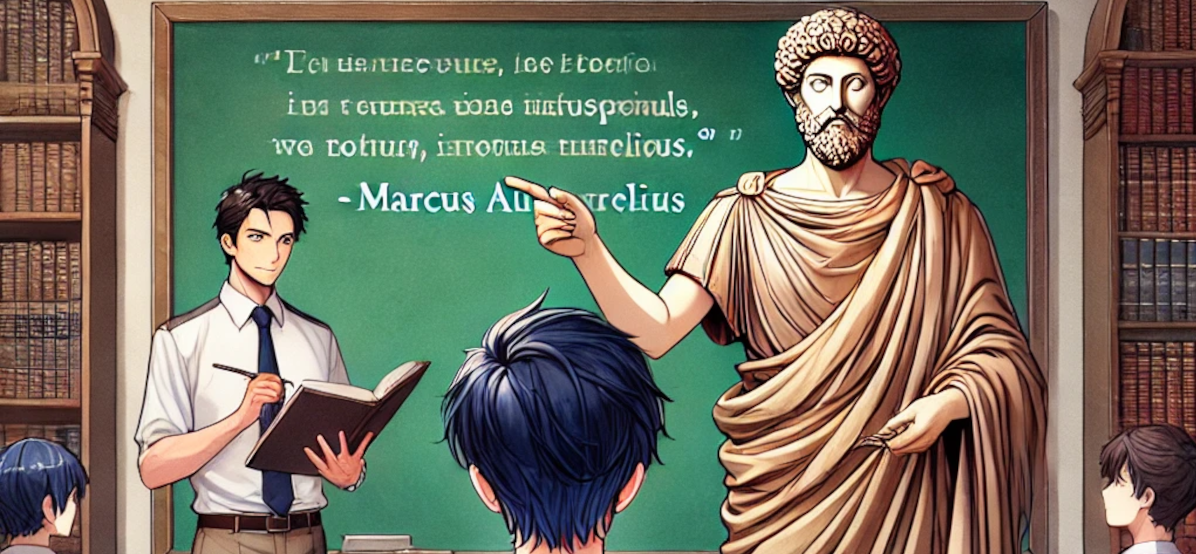Caitlin Clark has taken the WNBA by storm, not just with her exceptional skills and clutch performances but also with her intriguing approach to the game. Known for her poise and unflappable demeanor, Clark’s philosophy seems to align remarkably with Stoic principles. In the world of competitive sports, where emotions run high and tempers flare, her calm and calculated responses to challenges are nothing short of fascinating. This article explores two moments that encapsulate her Stoic tendencies and examines how her mindset can offer valuable lessons beyond the basketball court.
The Hard Foul and the Stoic Response
One notable instance, where Clark’s Stoicism shone through, was during a particularly rough game. After a hard foul, her response was not one of outrage nor retaliation but of remarkable composure. “I wasn’t expecting that,” Clark said. “But it’s just like: ‘respond, calm down and let your play do the talking.’ It is what it is. It’s a physical game, go make the free throw and then execute on offense. Feel like that’s what we did.”
In this moment, Clark’s words echoed the teachings of Stoic philosophers like Marcus Aurelius, who emphasized the importance of responding to external events with inner calm and rationality. Rather than allowing the foul to disrupt her focus (which was probably the point) she accepted it as part of the game and moved on. Her ability to maintain composure and focus on execution, rather than dwelling on the injustice of the foul, is a testament to her mental toughness and Stoic mindset. It’s a reminder that in life, as in basketball, we often face unexpected challenges, and our response to these challenges can define our success.
The Isolation of Excellence
Another quote from Clark that deserves scrutiny is her candid admission about the loneliness of leadership: “Nobody gives me advice in games,” Clark said. “I wish.” This statement, while seemingly straightforward, reveals a deeper sense of isolation that many people, not just athletes, can relate to. In the high-pressure environment of a WNBA game, Clark stands as a solitary figure, expected to perform and lead without guidance from her peers. And, often without them being able to catch her accurate passes.
This scenario is alarmingly similar to the isolation many of us feel in our professional lives. Whether it’s the CEO of a company, a project manager, or a creative professional, the burden of leadership often comes with a sense of solitude. The expectations are high, and the guidance is minimal. In such situations, Stoicism offers a valuable framework. The philosophy teaches us to find strength within ourselves, to rely on our inner resources, and to accept that external support may be limited. By focusing on what we can control and letting go of what we cannot, we can navigate the pressures of leadership with grace and resilience.
Stoicism Beyond the Court
Clark’s journey, and her Stoic responses to the pressures of professional basketball, offer lessons that extend far beyond the court. Her ability to stay calm under pressure and her acknowledgment of the isolation of leadership are not just traits of a great athlete but also hallmarks of a Stoic mindset. But how does this translate to the average person’s life?
Consider the “hard fouls” we take daily. You get an unexpected and unfair performance review at work. How do you respond? Become irate? Call HR? Say “eff it” and quiet quit? Those are all options that might cross your mind, but maybe take a page from Clark’s book: respond calmly, reflect on the feedback, accept that is what your supervisor believes, and focus on doing the best you can with the feedback you’ve gotten. It’s about accepting the situation as it is and using it as a catalyst for growth rather than letting it derail you.
Or think about personal conflicts. Maybe a friend or family member says something hurtful. Instead of lashing out or letting it fester, you channel your inner Stoic: understand that their words are a reflection of their state, not yours. Respond with grace, address the issue if needed, and then let it go. That part is so important – you’ve got to let it go! This ability to manage your emotions and reactions can transform how you navigate interpersonal relationships.
Clark’s acknowledgment of isolation and her desire for advice reflect a common struggle. Many of us feel alone in our challenges, be it at work or in personal endeavors. And many of us find ourselves in a workplace where our success viewed as a threat by those around us. Stoicism teaches us that while self-reliance is crucial, it’s also important to seek and accept wisdom when available. Building a support network, whether through mentors, peers, or friends, can provide the guidance and perspective needed to navigate tough situations.
Conclusion
Caitlin Clark’s demeanor and philosophy on the basketball court provide a compelling case study in modern Stoicism. Her responses to adversity and her reflections on the solitude of leadership resonate with timeless Stoic principles that can benefit us all. By embracing a Stoic mindset, we can navigate the challenges of our own lives with the same calm, resilience, and focus that Clark demonstrates in her remarkable career. Whether on the court or in the boardroom, Stoicism offers a path to inner strength and enduring success.

